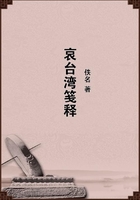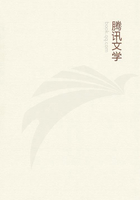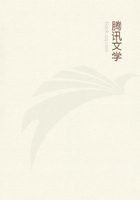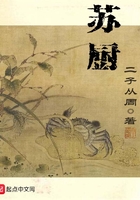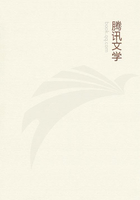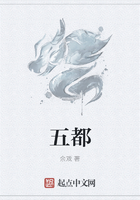On three days of the week he dined in a restaurant on his way home,and on the other days he dined in his chambers where his laundress had cooked his dinner.At two o'clock Alfred returned (having been home to dinner with his wife and children)and got tea ready for him.
He then wrote letters and attended to his accounts till 3.45,when he smoked his first cigarette.He used to smoke a great deal,but,believing it to be bad for him,took to cigarettes instead of pipes,and gradually smoked less and less,making it a rule not to begin till some particular hour,and pushing this hour later and later in the day,till it settled itself at 3.45.There was no water laid on in his rooms,and every day he fetched one can full from the tap in the court,Alfred fetching the rest.When anyone expostulated with him about cooking his own breakfast and fetching his own water,he replied that it was good for him to have a change of occupation.
This was partly the fact,but the real reason,which he could not tell everyone,was that he shrank from inconveniencing anybody;he always paid more than was necessary when anything was done for him,and was not happy then unless he did some of the work himself.
At 5.30he got his evening meal,he called it his tea,and it was little more than a facsimile of breakfast.Alfred left in time to post the letters before six.Butler then wrote music till about 8,when he came to see me in Staple Inn,returning to Clifford's Inn by about 10.After a light supper,latterly not more than a piece of toast and a glass of milk,he played one game of his own particular kind of Patience,prepared his breakfast things and fire ready for the next morning,smoked his seventh and last cigarette,and went to bed at eleven o'clock.
He was fond of the theatre,but avoided serious pieces.He preferred to take his Shakespeare from the book,finding that the spirit of the plays rather evaporated under modern theatrical treatment.In one of his books he brightens up the old illustration of 'Hamlet'without the Prince of Denmark by putting it thus:"If the character of Hamlet be entirely omitted,the play must suffer,even though Henry Irving himself be cast for the title-role."Anyone going to the theatre in this spirit would be likely to be less disappointed by performances that were comic or even frankly farcical.Latterly,when he grew slightly deaf,listening to any kind of piece became too much of an effort;nevertheless,he continued to the last the habit of going to one pantomime every winter.
There were about twenty houses where he visited,but he seldom accepted an invitation to dinner--it upset the regularity of his life;besides,he belonged to no club and had no means of returning hospitality.When two colonial friends called unexpectedly about noon one day,soon after he settled in London,he went to the nearest cook-shop in Fetter Lane and returned carrying a dish of hot roast pork and greens.This was all very well once in a way,but not the sort of thing to be repeated indefinitely.
On Thursdays,instead of going to the Museum,he often took a day off,going into the country sketching or walking,and on Sundays,whatever the weather,he nearly always went into the country walking;his map of the district for thirty miles round London is covered all over with red lines showing where he had been.He sometimes went out of town from Saturday to Monday,and for over twenty years spent Christmas at Boulogne-sur-Mer.
There is a Sacro Monte at Varallo-Sesia with many chapels,each containing life-sized statues and frescoes illustrating the life of Christ.Butler had visited this sanctuary repeatedly,and was a great favourite with the townspeople,who knew that he was studying the statues and frescoes in the chapels,and who remembered that in the preface to 'Alps and Sanctuaries'he had declared his intention of writing about them.In August,1887,the Varallesi brought matters to a head by giving him a civic dinner on the Mountain.
Everyone was present,there were several speeches and,when we were coming down the slippery mountain path after it was all over,he said to me:
"You know,there's nothing for it now but to write that book about the Sacro Monte at once.It must be the next thing I do."Accordingly,on returning home,he took up photography and,immediately after Christmas,went back to Varallo to photograph the statues and collect material.Much research was necessary and many visits to out-of-the-way sanctuaries which might have contained work by the sculptor Tabachetti,whom he was rescuing from oblivion and identifying with the Flemish Jean de Wespin.One of these visits,made after his book was published,forms the subject of "The Sanctuary of Montrigone."'Ex Voto',the book about Varallo,appeared in 1888,and an Italian translation by Cavaliere Angelo Rizzetti was published at Novara in 1894.
"Quis Desiderio .?"('The Humour of Homer and Other Essays')was developed in 1888from something in a letter from Miss Savage nearly ten years earlier.On the 15th of December,1878,in acknowledging this letter,Butler wrote:
I am sure that any tree or flower nursed by Miss Cobbe would be the VERY first to fade away and that her gazelles would die long before they ever came to know her WELL.The sight of the brass buttons on her pea-jacket would settle them out of hand.
There was an enclosure in Miss Savage's letter,but it is unfortunately lost;I suppose it must have been a newspaper cutting with an allusion to Moore's poem and perhaps a portrait of Miss Frances Power Cobbe--pea-jacket,brass buttons,and all.
On the 10th November,1879,Miss Savage,having been ill,wrote to Butler:
I have been dipping into the books of Moses,being sometimes at a loss for something to read while shut up in my apartment.You know that I have never read the Bible much,consequently there is generally something of a novelty that I hit on.As you do know your Bible well,perhaps you can tell me what became of Aaron.The account given of his end in Numbers xx.is extremely ambiguous and unsatisfactory.Evidently he did not come by his death fairly,but whether he was murdered secretly for the furtherance of some private ends,or publicly in a State sacrifice,I can't make out.I myself rather incline to the former opinion,but I should like to know what the experts say about it.A very nice,exciting little tale might be made out of it in the style of the police stories in 'All the rear Round'called "The Mystery of Mount Hor or What became of Aaron?"Don't forget to write to me.
Butler's people had been suggesting that he should try to earn money by writing in magazines,and Miss Savage was falling in with the idea and offering a practical suggestion.I do not find that he had anything to tell her about the death of Aaron.On 23rd March,1880,she wrote:
Dear Mr.Butler:Read the subjoined poem of Wordsworth and let me know what you understand its meaning to be.Of course I have my opinion,which I think of communicating to the Wordsworth Society.
You can belong to that Society for the small sum of 2/6per annum.I think of joining because it is cheap.
"The subjoined poem"was the one beginning:"She dwelt among the untrodden ways,"and Butler made this note on the letter:
To the foregoing letter I answered that I concluded Miss Savage meant to imply that Wordsworth had murdered Lucy in order to escape a prosecution for breach of promise.
Miss Savage to Butler.
2nd April,1880:My dear Mr.Butler:I don't think you see all that I do in the poem,and I am afraid that the suggestion of a DARKSECRET in the poet's life is not so very obvious after all.I was hoping you would propose to devote yourself for a few months to reading the 'Excursion',his letters,&c.,with a view to following up the clue,and I am disappointed though,to say the truth,the idea of a CRIME had not flashed upon me when I wrote to you.How well the works of GREAT men repay attention and study!But you,who know your Bible so well,how was it that you did not detect the plagiarism in the last verse?Just refer to the account of the disappearance of Aaron (I have not a Bible at hand,we want one sadly in the club)but I am sure that the words are identical [I cannot see what Miss Savage meant.1901.S.B.]'Cassell's Magazine'have offered a prize for setting the poem to music,and I fell to thinking how it could be treated musically,and so came to a right comprehension of it.
Although Butler,when editing Miss Savage's letters in 1901,could not see the resemblance between Wordsworth's poem and Numbers xx.,he at once saw a strong likeness between Lucy and Moore's heroine whom he had been keeping in an accessible pigeon-hole of his memory ever since his letter about Miss Frances Power Cobbe.He now sent Lucy to keep her company and often spoke of the pair of them as probably the two most disagreeable young women in English literature--an opinion which he must have expressed to Miss Savage and with which I have no doubt she agreed.
In the spring of 1888,on his return from photographing the statues at Varallo,he found,to his disgust,that the authorities of the British Museum had removed Frost's 'Lives of Eminent Christians'from its accustomed shelf in the Reading Room.Soon afterwards Harry Quilter asked him to write for the 'Universal Review'and he responded with "Quis Desiderio?"In this essay he compares himself to Wordsworth and dwells on the points of resemblance between Lucy and the book of whose assistance he had now been deprived in a passage which echoes the opening of Chapter V of 'Ex Voto',where he points out the resemblances between Varallo and Jerusalem.
Early in 1888the leading members of the Shrewsbury Archaeological Society asked Butler to write a memoir of his grandfather and of his father for their Quarterly Journal.This he undertook to do when he should have finished 'Ex Voto'.In December,1888,his sisters,with the idea of helping him to write the memoir,gave him his grandfather's correspondence,which extended from 1790to 1839.On looking over these very voluminous papers he became penetrated with an almost Chinese reverence for his ancestor and,after getting the Archaeological Society to absolve him from his promise to write the memoir,set about a full life of Dr.Butler,which was not published till 1896.The delay was caused partly by the immense quantity of documents he had to sift and digest,the number of people he had to consult,and the many letters he had to write,and partly by something that arose out of 'Narcissus',which we published in June,1888.
Butler was not satisfied with having written only half of this work;he wanted it to have a successor,so that by adding his two halves together,he could say he had written a whole Handelian oratorio.
While staying with his sisters at Shrewsbury with this idea in his mind,he casually took up a book by Alfred Ainger about Charles Lamb and therein stumbled upon something about the 'Odyssey'.It was years since he had looked at the poem,but,from what he remembered,he thought it might provide a suitable subject for musical treatment.
He did not,however,want to put Dr.Butler aside,so I undertook to investigate.It is stated on the title-page of both 'Narcissus'and 'Ulysses'that the words were written and the music composed by both of us.As to the music,each piece bears the initials of the one who actually composed it.As to the words,it was necessary first to settle some general scheme and this,in the case of 'Narcissus',grew in the course of conversation.The scheme of 'Ulysses'was constructed in a more formal way and Butler had perhaps rather less to do with it.We were bound by the 'Odyssey',which is,of course,too long to be treated fully,and I selected incidents that attracted me and settled the order of the songs and choruses.For this purpose,as I out-Shakespeare Shakespeare in the smallness of my Greek,I used 'The Adventures of Ulysses'by Charles Lamb,which we should have known nothing about but for Ainger's book.Butler acquiesced in my proposals,but,when it came to the words themselves,he wrote practically all the libretto,as he had done in the case of 'Narcissus';I did no more than suggest a few phrases and a few lines here and there.
We had sent 'Narcissus'for review to the papers,and,as a consequence,about this time,made the acquaintance of Mr.J.A.Fuller Maitland,then musical critic of the 'Times';he introduced us to that learned musician William Smith Rockstro,under whom we studied medieval counterpoint while composing 'Ulysses'.We had already made some progress with it when it occurred to Butler that it would not take long and might,perhaps,be safer if he were to look at the original poem,just to make sure that Lamb had not misled me.
Not having forgotten all his Greek,he bought a copy of the 'Odyssey'and was so fascinated by it that he could not put it down.When he came to the Phoeacian episode of Ulysses at Scheria he felt he must be reading the deion of a real place and that something in the personality of the author was eluding him.For months he was puzzled,and,to help in clearing up the mystery,set about translating the poem.In August,1891,he had preceded me to Chiavenna,and on a letter I wrote him,telling him when to expect me,he made this note:
It was during the few days that I was at Chiavenna (at the Hotel Grotta Crimee)that I hit upon the feminine authorship of the 'Odyssey'.I did not find out its having been written at Trapani till January,1892.
He suspected that the authoress in describing both Scheria and Ithaca was drawing from her native country and searched on the Admiralty charts for the features enumerated in the poem;this led him to the conclusion that the country could only be Trapani,Mount Eryx,and the AEgadean Islands.As soon as he could after this discovery he went to Sicily to study the locality and found it in all respects suitable for his theory;indeed,it was astonishing how things kept turning up to support his view.It is all in his book 'The Authoress of the Odyssey',published in 1897and dedicated to his friend Cavaliere Biagio Ingroja of Calatafimi.
His first visit to Sicily was in 1892,in August--a hot time of the year,but it was his custom to go abroad in the autumn.He returned to Sicily every year (except one),but latterly went in the spring.
He made many friends all over the island,and after his death the people of Calatafimi called a street by his name,the Via Samuel Butler,"thus,"as Ingroja wrote when he announced the event to me,"honouring a great man's memory,handing down his name to posterity,and doing homage to the friendly English nation."Besides showing that the 'Odyssey'was written by a woman in Sicily and translating the poem into English prose,he also translated the 'Iliad',and,in March,1895,went to Greece and the Troad to see the country therein described,where he found nothing to cause him to disagree with the received theories.
It has been said of him in a general way that the fact of an opinion being commonly held was enough to make him profess the opposite.It was enough to make him examine the opinion for himself,when it affected any of the many subjects which interested him,and if,after giving it his best attention,he found it did not hold water,then no weight of authority could make him say that it did.This matter of the geography of the 'Iliad'is only one among many commonly received opinions which he examined for himself and found no reason to dispute;on these he considered it unnecessary to write.
It is characteristic of his passion for doing things thoroughly that he learnt nearly the whole of the 'Odyssey'and the 'Iliad'by heart.
He had a Pickering copy of each poem,which he carried in his pocket and referred to in railway trains,both in England and Italy,when saying the poems over to himself.These two little books are now in the library of St.John's College,Cambridge.He was,however,disappointed to find that he could not retain more than a book or two at a time and that,on learning more,he forgot what he had learnt first;but he was about sixty at the time.Shakespeare's Sonnets,on which he published a book in 1899,gave him less trouble in this respect;he knew them all by heart,and also their order,and one consequence of this was that he wrote some sonnets in the Shakespearian form.He found this intimate knowledge of the poet's work more useful for his purpose than reading commentaries by those who are less familiar with it."A commentary on a poem,"he would say,"may be useful as material on which to form an estimate of the commentator,but the poem itself is the most important document you can consult,and it is impossible to know it too intimately if you want to form an opinion about it and its author."It was always the author,the work of God,that interested him more than the book--the work of man;the painter more than the picture;the composer more than the music."If a writer,a painter,or a musician makes me feel that he held those things to be lovable which I myself hold to be lovable I am satisfied;art is only interesting in so far as it reveals the personality of the artist."Handel was,of course,"the greatest of all musicians."Among the painters he chiefly loved Giovanni Bellini,Carpaccio,Gaudenzio Ferrari,Rembrandt,Holbein,Velasquez,and De Hooghe;in poetry Shakespeare,Homer,and the Authoress of the 'Odyssey';and in architecture the man,whoever he was,who designed the Temple of Neptune at Paestum.
Life being short,he did not see why he should waste any of it in the company of inferior people when he had these.And he treated those he met in daily life in the same spirit:it was what he found them to be that attracted or repelled him;what others thought about them was of little or no consequence.
And now,at the end of his life,his thoughts reverted to the two subjects which had occupied him more than thirty years previously--namely,'Erewhon'and the evidence for the death and resurrection of Jesus Christ.The idea of what might follow from belief in one single supposed miracle had been slumbering during all those years and at last rose again in the form of a sequel to 'Erewhon'.In 'Erewhon Revisited'Mr.Higgs returns to find that the Erewhonians now believe in him as a god in consequence of the supposed miracle of his going up in a balloon to induce his heavenly father to send the rain.Mr.Higgs and the reader know that there was no miracle in the case,but Butler wanted to show that whether it was a miracle or not did not signify provided that the people believed it be one.And so Mr.Higgs is present in the temple which is being dedicated to him and his worship.
The existence of his son George was an afterthought and gave occasion for the second leading idea of the book--the story of a father trying to win the love of a hitherto unknown son by risking his life in order to show himself worthy of it--and succeeding.
Butler's health had already begun to fail,and when he started for Sicily on Good Friday,1902,it was for the last time:he knew he was unfit to travel,but was determined to go,and was looking forward to meeting Mr.and Mrs.J.A.Fuller Maitland,whom he was to accompany over the Odyssean scenes at Trapani and Mount Eryx.But he did not get beyond Palermo;there he was so much worse that he could not leave his room.In a few weeks he was well enough to be removed to Naples,and Alfred went out and brought him home to London.He was taken to a nursing home in St.John's Wood where he lay for a month,attended by his old friend Dr.Dudgeon,and where he died on the 18th June,1902.
There was a great deal he still wanted to do.He had intended to revise 'The Way of All Flesh',to write a book about Tabachetti,and to publish a new edition of 'Ex Voto'with the mistakes corrected.
Also he wished to reconsider the articles reprinted in 'The Humour of Homer',and was looking forward to painting more sketches and composing more music.While lying ill and very feeble within a few days of the end,and not knowing whether it was to be the end or not,he said to me:
"I am much better to-day.I don't feel at all as though I were going to die.Of course,it will be all wrong if I do get well,for there is my literary position to be considered.First I write 'Erewhon'--that is my opening subject;then,after modulating freely through all my other books and the music and so on,I return gracefully to my original key and write 'Erewhon Revisited'.Obviously,now is the proper moment to come to a full close,make my bow and retire;but I believe I am getting well,after all.It's very inartistic,but I cannot help it."Some of his readers complain that they often do not know whether he is serious or jesting.He wrote of Lord Beaconsfield:"Earnestness was his greatest danger,but if he did not quite overcome it (as indeed who can?it is the last enemy that shall be subdued),he managed to veil it with a fair amount of success."To veil his own earnestness he turned most naturally to humour,employing it in a spirit of reverence,as all the great humorists have done,to express his deepest and most serious convictions.He was aware that he ran the risk of being misunderstood by some,but he also knew that it is useless to try to please all,and,like Mozart,he wrote to please himself and a few intimate friends.
I cannot speak at length of his kindness,consideration,and sympathy;nor of his generosity,the extent of which was very great and can never be known--it was sometimes exercised in unexpected ways,as when he gave my laundress a shilling because it was "such a beastly foggy morning";nor of his slightly archaic courtliness--unless among people he knew well he usually left the room backwards,bowing to the company;nor of his punctiliousness,industry,and painstaking attention to detail--he kept accurate accounts not only of all his property by double entry but also of his daily expenditure,which he balanced to a halfpenny every evening,and his handwriting,always beautiful and legible,was more so at sixty-six than at twenty-six;nor of his patience and cheerfulness during years of anxiety when he had few to sympathize with him;nor of the strange mixture of simplicity and shrewdness that caused one who knew him well to say:"Il sait tout;il ne sait rien;il est poete."Epitaphs always fascinated him,and formerly he used to say he should like to be buried at Langar and to have on his tombstone the subject of the last of Handel's 'Six Great Fugues'.He called this "The Old Man Fugue,"and said it was like an epitaph composed for himself by one who was very old and tired and sorry for things;and he made young Ernest Pontifex in 'The Way of All Flesh'offer it to Edward Overton as an epitaph for his Aunt Alethea.Butler,however,left off wanting any tombstone long before he died.In accordance with his wish his body was cremated,and a week later Alfred and Ireturned to Woking and buried his ashes under the shrubs in the garden of the crematorium,with nothing to mark the spot.
Footnotes:
{1}I am indebted to one of Butler's contemporaries at Cambridge,the Rev.Dr.T.G.Bonney,F.R.S.,and also to Mr.John F.Harris,both of St.John's College,for help in finding and dating Butler's youthful contributions to the 'Eagle'.
{2}This gentleman,on the death of his father in 1866,became the Rev.Sir Philip Perring,Bart.
{3}The late Sir Julius von Haast,K.C.M.G.,appointed Provincial Geologist in 1860,was ennobled by the Austrian Government and knighted by the British.He died in 1887.

